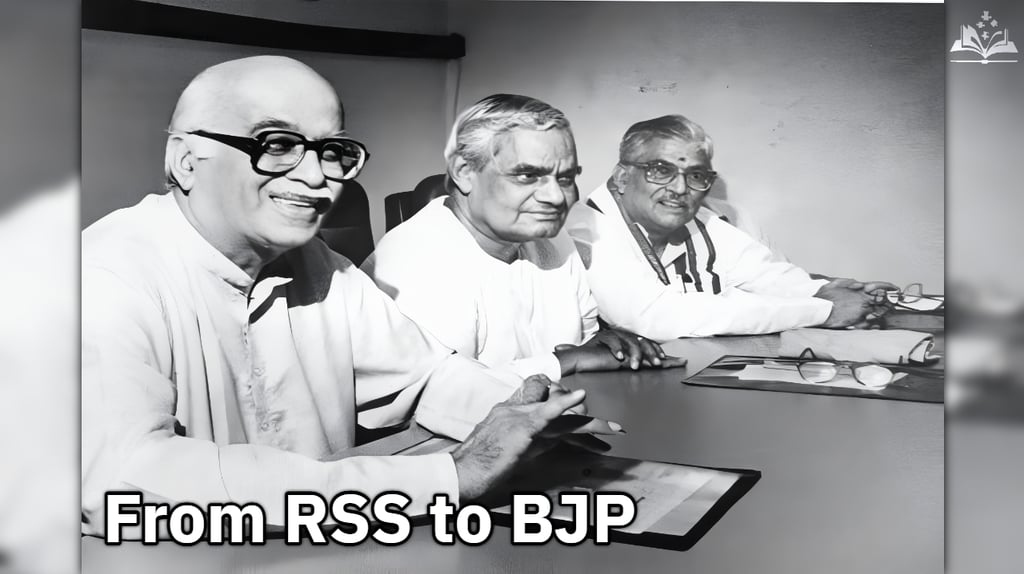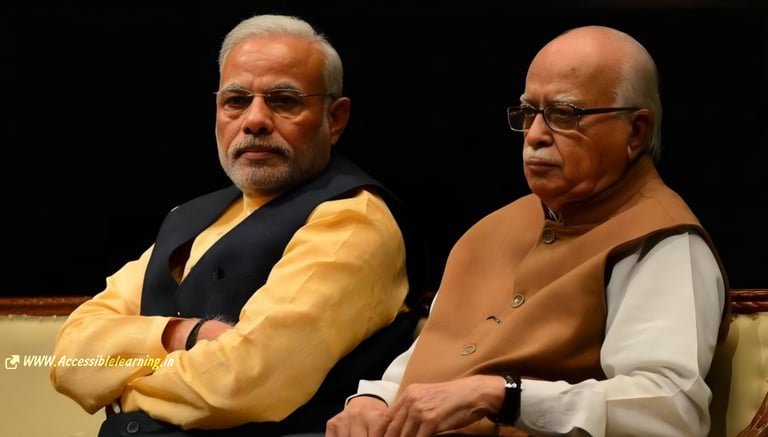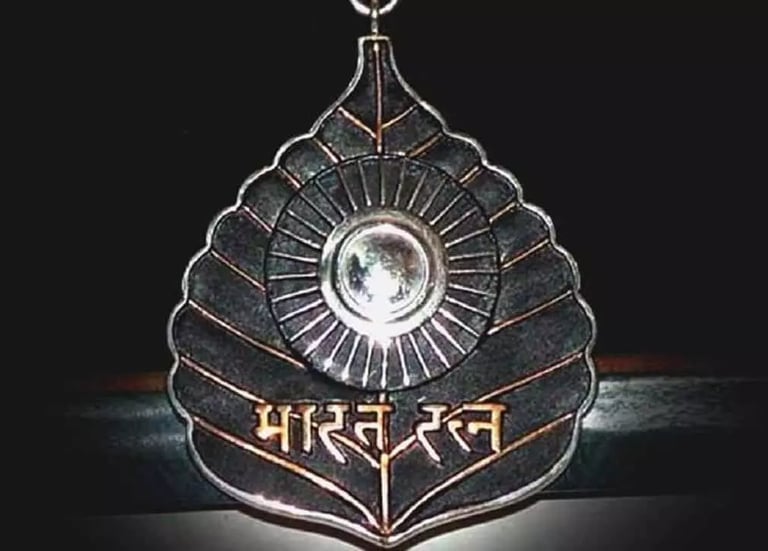
From RSS to BJP: The Political Journey of L.K. Advani
The life and legacy of L.K. Advani, a towering figure in Indian politics. Discover his journey from the RSS to becoming the architect of the BJP's rise, his contributions, controversies, and his enduring vision for India.
BIOGRAPHY/HISTORYRSSBJPTHE GREAT LEADERPOLITICAL JOURNEYEDUCATION/KNOWLEDGE
Keshav Jha
1/25/20255 min read
Lal Krishna Advani (लालकृष्ण आडवाणी) Ji, widely regarded as one of the stalwarts of Indian politics, has left an indelible mark on the country's political landscape. Known for his leadership, vision, and unwavering commitment to his ideals, Advani Ji’s journey epitomizes resilience and dedication. This article delves into his life, achievements, controversies, and legacy, providing an in-depth look at one of India's most influential political figures.
Early Life and Education
Born on November 8, 1927, in Karachi (then part of undivided India), L.K. Advani hailed from a Sindhi Hindu family. His formative years were deeply influenced by the cultural ethos of Sindh, which celebrated harmony and spirituality. Following the partition of India in 1947, Advani’s family migrated to India, a life-altering event that shaped his political worldview.
Advani completed his schooling at St. Patrick’s High School, Karachi, and later pursued higher education at D.G. National College in Hyderabad, Sindh (pre-partition). After moving to India, he studied law, a discipline that honed his analytical skills and reinforced his commitment to justice.
Political Journey: From the RSS to BJP
Advani Ji’s political journey began in 1947 when he joined the Rashtriya Swayamsevak Sangh (RSS), a Hindu nationalist organization dedicated to nation-building. His disciplined approach and ideological commitment quickly earned him leadership roles within the organization.
In 1951, Advani became associated with the newly formed Bharatiya Jana Sangh (BJS), the political wing of the RSS. His tenure in the BJS was marked by his organizational skills, which played a pivotal role in strengthening the party's grassroots network.
With the formation of the Bharatiya Janata Party (BJP) in 1980, Advani, alongside Atal Bihari Vajpayee, emerged as one of the party's founding leaders. His vision for a culturally unified and economically strong India became the cornerstone of the BJP's ideology.
The Ram Janmabhoomi Movement
L.K. Advani’s most defining political moment was his leadership in the Ram Janmabhoomi (राम जन्मभूमि) Movement, advocating for the construction of a Ram temple in Ayodhya. In 1990, Advani undertook a historic Rath Yatra, traveling across the country to galvanize support for the movement. This yatra not only brought the BJP into national prominence but also redefined India’s political narrative, focusing on cultural identity and nationalism.
While the movement significantly boosted Advani’s political career, it was also mired in controversy due to the communal tensions it sparked, culminating in the demolition of the Babri Masjid in 1992. This event remains one of the most polarizing chapters in India’s history.
Tenure as Deputy Prime Minister
Advani served as Deputy Prime Minister of India from 2002 to 2004 under Prime Minister Atal Bihari Vajpayee’s government. During this time, he held the portfolio of Home Affairs and played a crucial role in shaping India’s internal security policies. His tenure was marked by efforts to combat terrorism and strengthen India’s intelligence infrastructure.
Key Contributions and Achievements
Strengthening the BJP: Advani transformed the BJP from a marginal player in Indian politics to a dominant force. Under his leadership, the party won the 1998 and 1999 general elections, forming the government at the center.
Advancing Nationalism: Advani’s speeches and policies emphasized cultural nationalism, resonating with a broad section of Indian society.
Infrastructure Development: As a senior leader in the Vajpayee government, Advani supported major infrastructure projects like the Golden Quadrilateral, connecting India’s major cities through a network of highways.
Empowering Youth and Women: Advani consistently advocated for greater youth and women’s participation in politics, recognizing their role in shaping India’s future.
Articulate Statesman: Known for his oratory skills, Advani’s speeches often reflected his deep understanding of Indian culture, history, and contemporary issues.
Promoter of Digital India: Advani was an early advocate for adopting technology in governance, recognizing its potential to transform India’s socio-economic fabric.




Controversies
Advani Ji’s career was not without controversy. His alleged role in the Babri Masjid demolition led to widespread criticism and legal challenges. Additionally, his comments during a 2005 visit to Pakistan, where he praised Muhammad Ali Jinnah as a secular leader, sparked outrage within his party and the broader Sangh Parivar.
Despite these challenges, Advani’s ability to navigate political storms showcased his resilience and strategic acumen.
Personal Life and Values
L.K. Advani married Kamla Advani in 1965, and the couple had two children, Pratibha and Jayant. Known for his disciplined lifestyle and integrity, Advani is also an avid reader and writer. His autobiography, “My Country, My Life,” provides a candid account of his political journey and vision for India.
Advani’s personal values of discipline, dedication, and humility have earned him respect across political and social spectrums. He is known to maintain warm relationships even with political adversaries, embodying the spirit of democratic debate.
Legacy
L.K. Advani is often referred to as the "Iron Man of the BJP," a title that underscores his steadfast resolve and commitment to his principles. Despite stepping away from active politics in recent years, his influence remains significant. As one of the architects of the BJP’s rise, Advani’s contributions have shaped the party’s ideology and organizational framework.
His legacy is a blend of achievements and controversy, reflecting the complexities of Indian politics. For supporters, he remains a visionary leader who championed cultural nationalism and strengthened India’s democratic fabric. For critics, his role in polarizing politics remains a subject of debate.
Advani’s Vision for India
Throughout his career, Advani articulated a vision of India that was rooted in cultural pride, economic self-reliance, and global leadership. He emphasized the importance of:
Cultural Reawakening: Advani believed in reviving India’s rich cultural heritage to foster a sense of national unity and pride.
Economic Growth: Advocating for market-friendly policies, Advani supported liberalization and globalization while ensuring the interests of marginalized communities.
Strong Defense: He consistently emphasized the need for a robust defense policy, advocating for modernizing India’s armed forces and enhancing strategic capabilities.
Inclusive Development: While often associated with cultural nationalism, Advani also highlighted the importance of inclusive growth, focusing on rural development, education, and healthcare.


L.K. Advani Ji’s life is a testament to the power of determination and ideological commitment. From his early days in the RSS to becoming one of India’s most prominent political leaders, Advani’s journey is a saga of perseverance. His role in shaping modern Indian politics is undeniable, making him a figure who will continue to inspire debate and analysis for generations to come.
"L.K. Advani’s story is not just about politics—it’s about the evolution of India as a democratic and pluralistic nation. His contributions, challenges, and vision remain pivotal in understanding contemporary India."
Subscribe To Our Newsletter
All © Copyright reserved by Accessible-Learning Hub
| Terms & Conditions
Knowledge is power. Learn with Us. 📚


